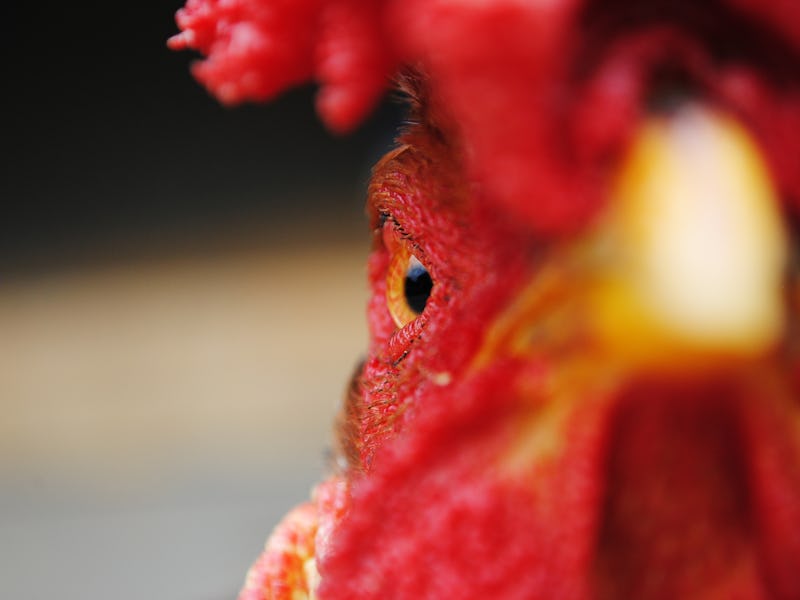No 'Dirty' American Chickens, Say British Food Safety Experts
Why a team of British academics don't want the chicken to cross the pond.

The United States exports more poultry than almost any other country in the world, but not everyone is a fan of American chicken.
A team of British food policy experts released a new briefing paper titled “Will the British public accept chlorine-washed turkey for Christmas dinner, after Brexit?” that makes a strong case against American poultry. With the UK preparing for its exit from the European Union, the country is currently negotiating post-Brexit trade deals, which could allow American chicken back into at least one European market. (American chicken has been banned from Europe since 1997.)
The issue is that American poultry is washed in chemical disinfectants, like chlorine, a practice banned under European food safety standards. In Europe, chicken is typically washed in cold water.
According to standards set forth in a World Health Organization and UN Food and Agricultural Organization report, disinfectants “must not be used to mask poor hygiene conditions.”
Which is exactly what is happening in the American poultry market. In the U.S., poultry is mostly raised in factory farms with the birds crammed into small areas. This reduces costs for farmers but increases the likelihood of disease. The UK briefing paper cites that 97 percent of American chicken breast meat is contaminated with salmonella and E. Coli.
In comparison, the European Union has higher standards for raising poultry, with legally mandated minimums for space, light, and ventilation provided to the birds. This is more expensive, but poultry that are raised in more space are less likely to fall sick and spread disease.
Additionally, the food policy experts also fear that allowing disinfectant-washed poultry may open the door for disinfectant-washed fruit, vegetables, and fish - also common practices in the United States.
“The UK should continue to insist on improving hygiene standards in poultry farms, slaughter houses and meat-cutting plants and not allow standards to decline, nor try relying on chemical disinfectants to reduce the harm that filthy meat can cause,” said Professor Erik Millstone, one of the briefing paper’s authors. “UK consumers would be safer to keep EU standards, and not to accept US disinfectant-washed-but-still-dirty poultry.”
The academics conclude by recommending that the UK commits to maintaining the same safety and quality standards that it had under the EU; and that public health, environmental, animal welfare, and consumer organizations should work together to prevent the sale of poultry, fish, fruit, and vegetables washed with chemical disinfectants in the UK.